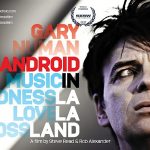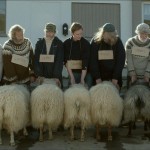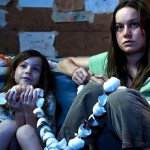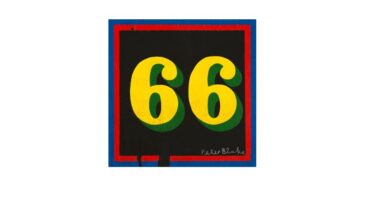Jonathan is the co-founder and programmer for the LOCO London Comedy Film Festival. He dropped by the office to chat to Niki Alexandrou about the festival, comedy films and how to get your submissions in for the 2016 LOCO festival.
First things first, what made you want to start the festival?
Director of the festival, Denise and I set up the festival together. We’ve been friends for a very long time and we got to talking and we spoke about what was a job that needed to be done. There are 80 film festivals in London every year, which is over one a week so we felt we had to have a mission and a reason to exist. What we quite quickly realized is that we both love comedy but that comedy films tend not to win awards – only 5 comedy films have ever won best picture, comedy performances rarely win awards, The fact that people like Bill Murray, Peter Sellers and Richard Prior never won Oscars is shocking. We felt it (LOCO) was a way of celebrating the craft of comedy film making, of showing films we really loved, and the heart of the purpose festival is to get more British Independent comedy films made.
In terms of the Oscars, or awards more generally, why do you think it is that comedy doesn’t get the same plaudits that drama does? It’s often deemed that comedy is in fact much harder to do well.
It’s much harder, right. Comedy is like doing 150% of the work because a good comedy has got a really good plot, really good characters that you care about going through some kind of dilemna, having their world upended, you know, there have to twists, you have to care about what happens to them AND THEN you have to make it really really funny. And Judd Apatow – I read a really good interview with him and he said literally writes every film as a drama, plots it as a drama and then adds the jokes. And I think that is the way to do it. Yeah it is harder and yet it’s taken less, seriously and I think its because comedies, you know, comedies don’t walk with importance, I think we’re used to those biographical films or issue films that walk with importance, they have a heavy step and they’re pleading for awards and they’re hours and hours long, whereas comedies, you know, tread lightly, they’re over in an hour and a half
Good ones at least
Good ones yes, very important point but, you know, I would say that Groundhog Day is as wise and intelligent and philosophical as anything made by Ingmar Bergman, I mean, and I also love Ingmar Bergman but, you know, I think when you look at the great comedies; if you look at Groundhog Day or The Apartment or Harold and Maude or Manhattan, you know, they speak so broadly and so wisely about life and yet they tend not to be appreciated.
The LOCO festival this year, you’re focusing on brains heart and courage in an homage to the Wizard of Oz, what made you chose those themes and what are you hoping will come forward from this?
I do love The Wizard of Oz, which is one reason and I think another reason was we were trying to define the sorts of films we show at the festival and what we realized was that, if we said well we want ‘independent comedy films’, I think that would exclude something like Inside Out, which I think is an incredibly intelligent, fascinating film. I didn’t want to say we just want slapstick films, or we just want “dark” comedy because I think if we said “dark” comedy that would exclude a lot of enormously entertaining, it would exclude screwball comedy, which is probably my favourite genre. I think what we realized, having tried to write endless phrases, was that The Wizard of Oz was very very helpful ‘cause what we wanted is comedy films with brains, heart and courage and by that what I mean is:
Brains: that there about something, you know, they’re not just there to make you laugh, its not a kind of gag reel strung together cause actually I think we would tire of that after about half an hour. So there has to be a theme, there has to be something that the filmmaker wants to explore. I think good examples of that would be Dr Strangelove or Four Lions; I think comedies can take on subjects that are too dark, in a way, for drama to touch or certainly too dark for popular drama to touch.
Heart: We have to care about the people. Comedians talk about punching up and punching down. Punching up is lets hit the people in power; lets hit the rich and the people who don’t need our help. Punching down is lets punch the vulnerable, and I think there’s too much of that and we always look for comedies that punch up rather than down. We want comedies where we genuinely care about the characters and that doesn’t mean that they’re likeable. I mean I think Inside Llewyn Davis is a brilliant film but that is testing the limits of how unlikeable a character can be whilst still being loveable. I think we love Llewyn but we don’t, I wouldn’t want to spend any time with him.
Then Courage is about, I think there’s a truism in the industry and I‘ve had some quite disappointing, conversations with people who work in production and development who say “well its comedy it doesn’t need to look good” and I think no, I want comedy that is cinematically worthwhile, its worth, turning off the lights, having the widescreen, having the full audience together in the dark to watch something really beautiful and I think again if you look at obviously Wes Anderson’s movies look beautiful and so do Roy Anderson’s and so do Paul Thomas Anderson’s and that’s just the Andersons. And they’re three very very different looks but they all bring, I think, a very distinctive style, to comedy. But I think that’s also true of Woody Allen’s career, I think really transformed when he first worked with Gordon Willis – in that Annie Hall, Manhattan period suddenly the films all look glorious and they stop being sketches and start being movies.
Tell us about what the LOCO discovery awards are and what categories there are?
The discovery awards, it’s very simple, we’re looking for brilliant new British comedy film making talent and so they have to be made by directors who’ve not had a film released in cinemas and that’s pretty much it. We try and keep it very very broad. So there’s a feature award and there’s a short film award so any new short film is eligible by young British directors, they don’t have to be young actually, incidentally. In fact more important than that, I think we’re really committed to having a wider variety of voices in comedy, cause I think comedy, you know, even more than other genres, there aren’t enough women directors, there aren’t enough directors from different ethnic backgrounds and different national or cultural backgrounds, there aren’t enough disabled directors working in comedy and I think we have a massive commitment to just having more voices cause I think the broader the experience the more interesting the films will become.
You also accept films not in the English language – is that something you’ve always done?
Good point, yes. For the discovery awards we define it at British based filmmakers but if you are a British based filmmakers but who doesn’t have English as your first language or you don’t want to make films in English then that’s completely fine. You just have to live here. Again I think its about that diversity, you know, we’re in a city where every language in the world is spoken by someone and I would hate to exclude British films that don’t happen to be in English. In fact in the festival as a whole we have, between a third and half of the previews and premieres that we have are in languages other than English. Again there’s a ‘truism’ that foreign comedy doesn’t travel and I don’t think that’s true. I think bad comedy doesn’t travel but good comedy is universal.
You’ve opened up submissions to the festival so if people want to submit their film, how do they do that?
Submit your films at locofilmfestival.com. Submissions are open until the end of November so get your skates on. The thing that I’m really really proud of is that we’ve had four years so far of the discovery features: Black Pond was the first year and that went on to have a BIFA nomination and a BAFTA nomination and an Evening Standard nomination. The second year was Wizard’s Way, which is being remade by Jack Black. It was originally made for £300, Jack Black saw it and wants to remake for I don’t know how many million. The third year was Destiny Ekaragha’s Gone Too Far, which when we showed it a lot of people said ‘well that’s a very British Nigerian narrow experience that people aren’t gonna warm to it’. We showed it and London Film Festival also showed it and people love it because actually, yes it’s a very specific experience but it’s also a very universal experience about trying to find a sense of identity and belonging in a world that seems confusing and weird, well that’s everyone’s experience but told through that very specific lens. Then this year’s winner was Superbob, Brett Goldstein and John Drever’s wonderful superhero rom com. So I think they’re four very very different films, they’re films that have all I think gone from being underdogs to real successes both critically and commercially so we are looking for the next one and obviously for the shorts as well.
For more information head to locofilmfestival.com or follow @LOCOFilmFest
Niki Alexandrou















